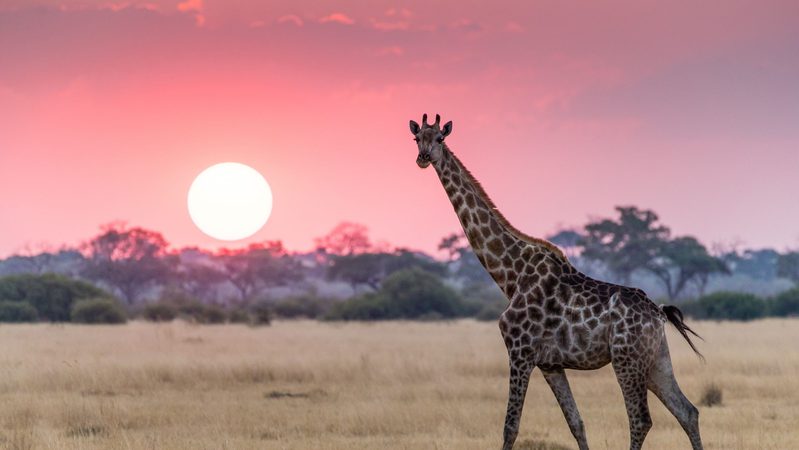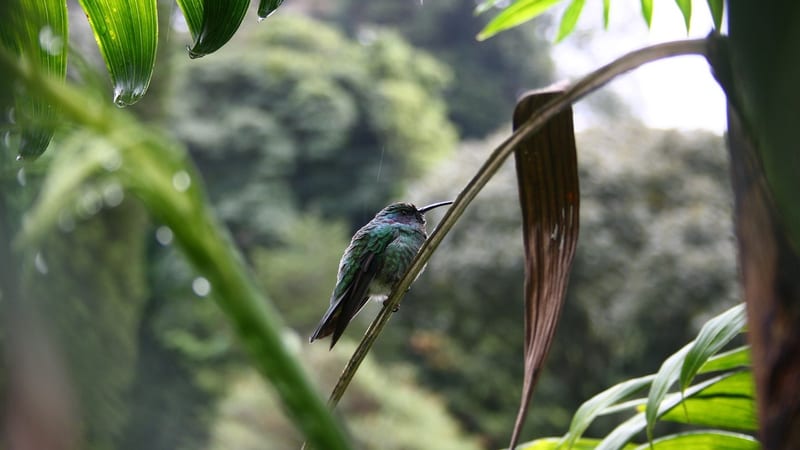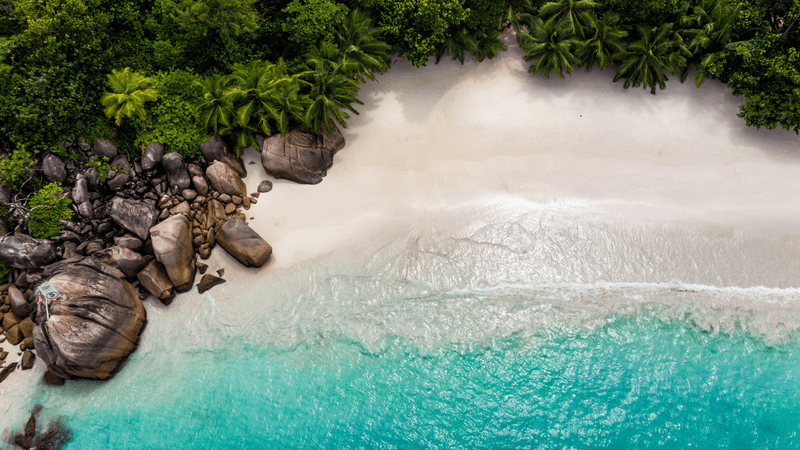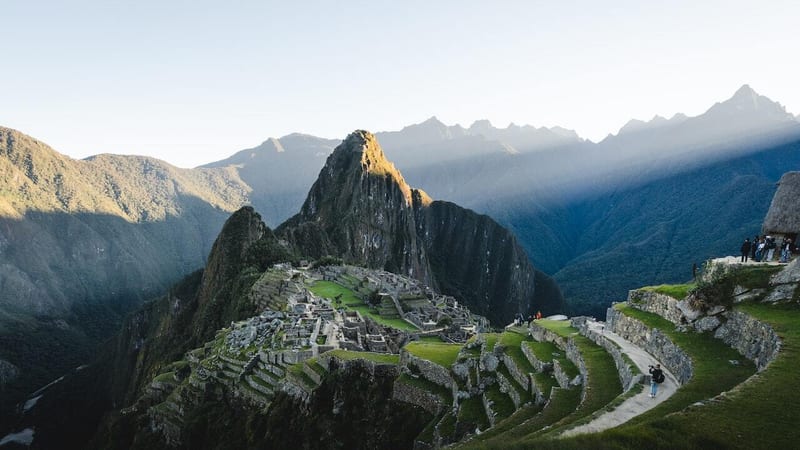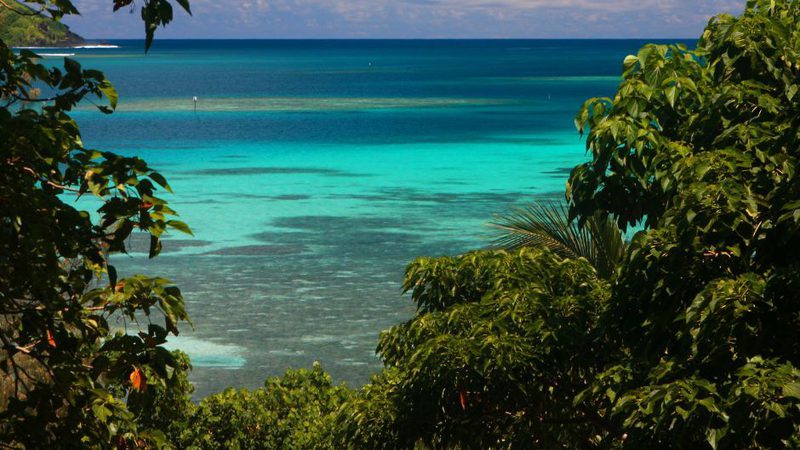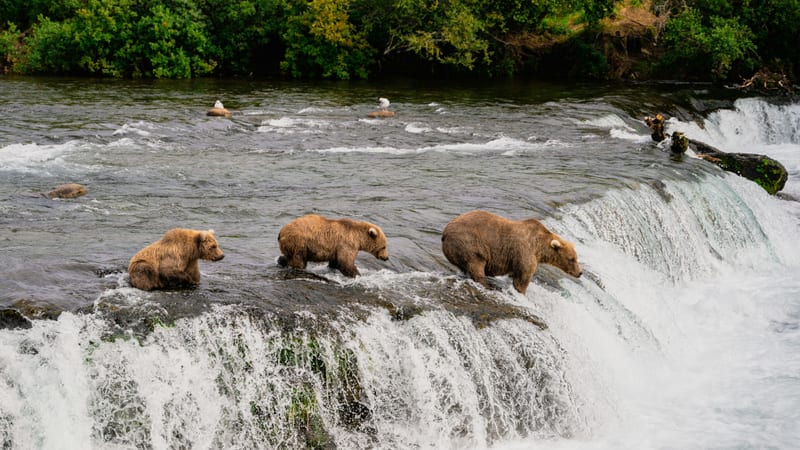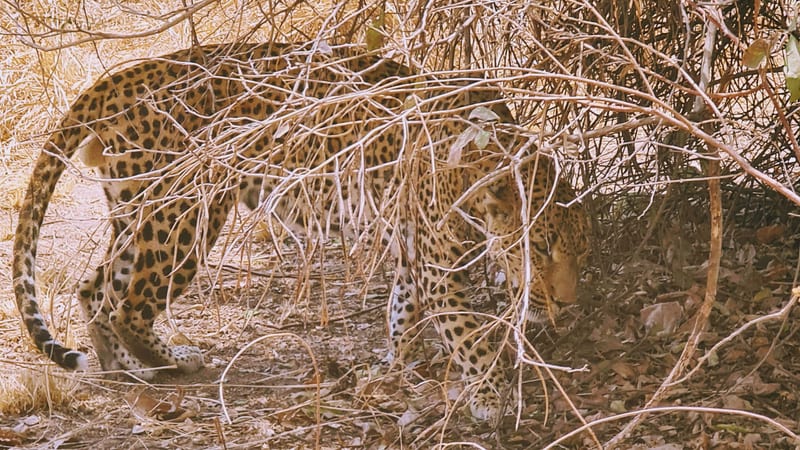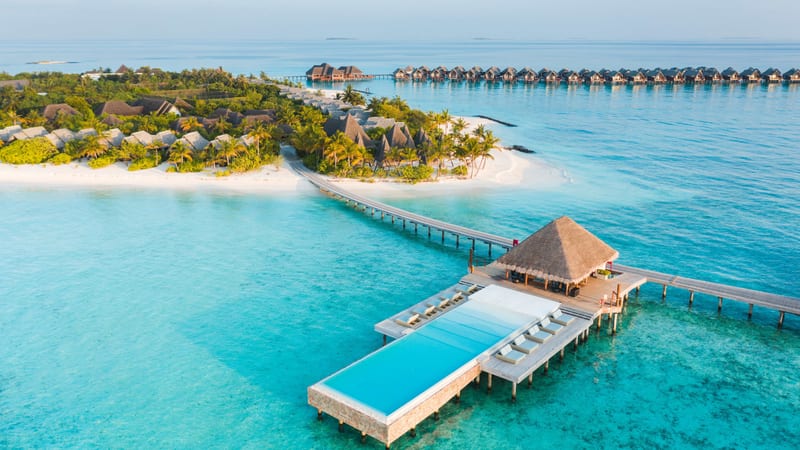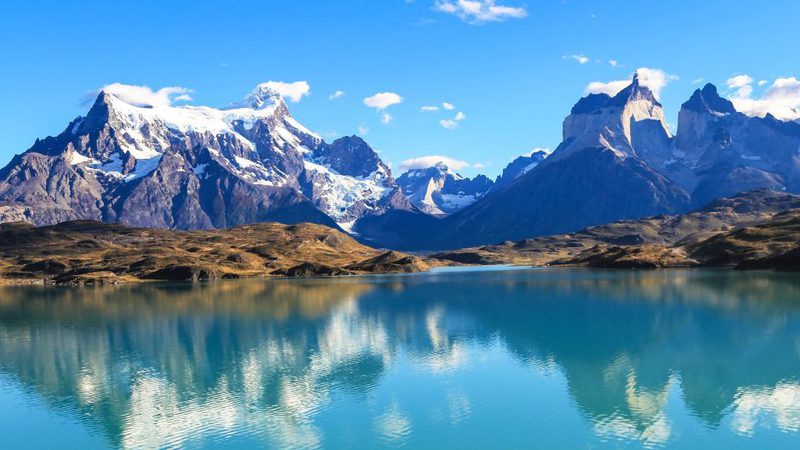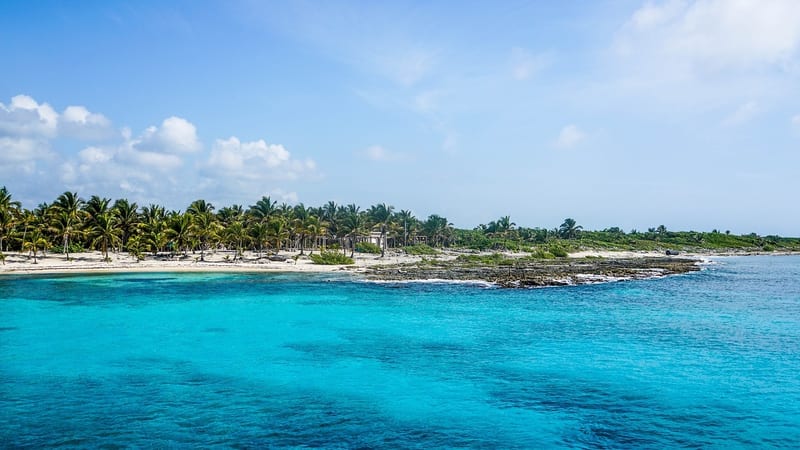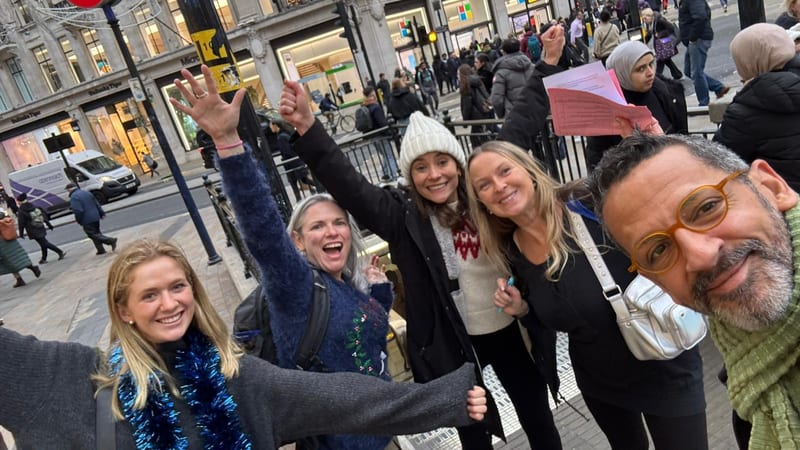Top 10 things to do on the Kenyan coast
Wondering what else there is to do apart from sunbathe? From camels to diving, the Kenyan coast has something for everyone.
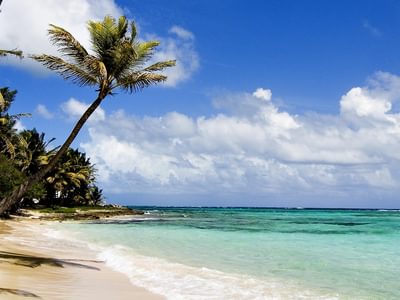
A short hot from the Masai Mara and you’ll find yourself on uncrowded palm-fringed beaches, with the softest of sand and a year-round warm azure sea – it is no wonder that the Kenyan coast has become rather popular, and many of our clients are choosing to come here after a Kenyan safari rather than flying further afield to Zanzibar.
Whilst it is the perfect spot to sit and do nothing, there are coral reefs, mangroves and ancient towns just waiting to be explored. Whether you are planning a romantic Kenyan honeymoon or are looking to entertain all the family on a Kenya holiday - we've got you covered!
Here are our top 10 things to do on the Kenyan coast.
1. Sail in a Dhow
A dhow is a traditional Swahili sailing boat made of wood with one sail. One of the main activities in the Lamu archipelago is sailing a dhow across the harbour and up the Takwa River, with a spot of fishing along the way, followed by a barbeque on the sandy beach at Manda Island.
If you’re looking for adventure, sailing out into the ocean to snorkel over the reefs at Manda around Kinyika rock is a fantastic way to explore the archipelago, alternatively, a sunset dhow cruise is hard to beat!
Where to stay
Peponi. A small, family-run boutique hotel where every bedroom individually decorated bedroom has a sea view and guests return year after year for the friendly service and stunning beaches.
2. Kite Surfing
Miles of crystal-clear lagoons paired with consistent reliable winds make Diani the number-one beach in Africa for kite surfing. The shallow sea and soft wide beach ensure this is the perfect place to learn and progress your skills, and the lovely warm water is always a bonus. An excellent beach atmosphere means you’ll have fun both in and out of the water.
Ben our Founder is a kite surfing enthusiast so will happily share his experiences of kite surfing in Kenya.
Where to stay
Kinondo Kwetu is a family-run Swedish lodge with a home away from home feel to it. Tucked away from the crowds, this quiet lodge offers the perfect spot to relax and indulge in the plethora of activities available.
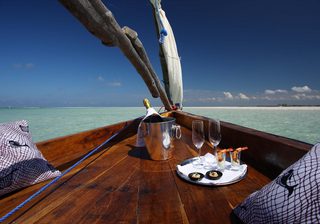

3. Explore Ancient Swahili Towns
The ruined city of Gedi is one of Kenya’s greatest mysteries. Founded in the early 13th century deep into the thick forests just outside Watamu, Gede was later completely abandoned, and no one really knows why. A bit like a mini Angkor Wat, the ruins at Gede are fascinating, with numerous coral-brick houses, a palace, and even a mosque to visit.
4. Reel in some Big Fish
Deep sea fishing enthusiasts and keen amateurs should head to Watamu, where marlin, sailfish, spearfish and swordfish are all frequent catches. With several skilled skippers operating out of Watamu you’re guaranteed to be accompanied by a world renowned professional. So, get your lures and reels and head out to the deep waters to see what you can reel in.
Diani beach also offers some fantastic fishing in traditional dhows.
Where to stay
Hemingways Watamu is located in the center of the pristine Watamu Marine National Park, a UNESCO Biosphere Reserve famed for its warm, tropical waters and white sandy beaches. Every room has a sea view, the spa is newly renovated and the botanical swimming pool is divine.
Here you can do some of the best game fishing in the world (quite the accolade), plus kite-surfing, PADI certified diving and sunset dhow cruises, but guests should also take the chance to explore Gedi nearby.
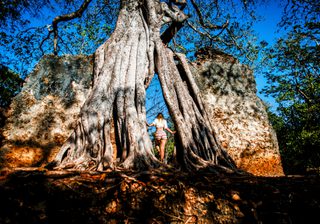
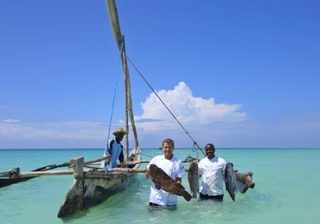
5. Cruise the Mangrove Creeks
Stretching from the sea inland to the Arabuko Sokoke Forest, Mida Creek is one of Watamu’s hidden treasures. A tidal inlet lined with palm trees and surrounded by an extensive tangle of mangroves, Mida Creek is home to many species of fish, birds, and sea turtles, and is best explored by dhow at sunset for the ultimate sundowner experience.
Where to stay
Medina Palm hotel offers elegant accommodation with a range of suites and villas with views over either the ocean or the tropical gardens. The perfect spot to relax and unwind, and of course, a sunset cruise is an absolute must!
6. Discover historical Kenya
The quintessential tropical port of Mombasa boasts many shops to explore. If you want to discover a bit of culture, Fort Jesus is an outstandingly well-preserved example of the Portuguese military fortification. Harking back to their 16th century occupation of Kenya, it’s the perfect place to explore and learn about Kenya’s history.
Alternatively, take a walk around the historic town of Lamu, Kenya’s oldest settlement and where business is conducted by donkey, foot or dhow. Discover a different side of Africa as you wander the narrow streets with palm trees, mosques and forts. Stop at a street café for a steaming chapati and milky tea as you watch the world go by.
Where to stay
The Majlis on Manda Island offers guests a wonderful combination of luxury and comfort. Relax by the pool which overlooks the turquoise sea and Lamu Island, take a stroll along the sandy beaches and of course, take a boat over the Lamu, a UNESCO World Heritage Site town.
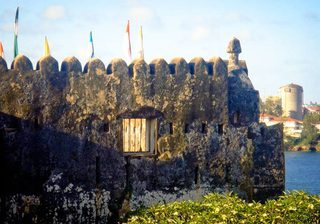
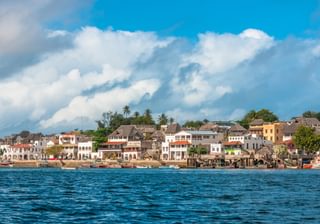
7. Swim with whale sharks
Whale sharks are the largest fish in the ocean and swimming alongside one is something you will never forget. These docile giants migrate along the Kenyan coast from November to February and if you are lucky, you might have the chance to swim with them.
Where to stay
The Sands at Nomad is situated directly on the beach within 26 acres of coastal forest providing guests with privacy and tranquillity.
There is a PADI 5-star dive centre on site which offers dive courses, wreck explorations and whale shark spotting.
8. Go snorkelling and diving
There are numerous wonderful snorkelling spots along the Kenyan coast and the sea is a balmy 25 degrees throughout the year. The clearest water is in January and February which make this the perfect time to spot the plethora of multicoloured fish that call this coast home. It is also a good time to see whale sharks which migrate up the coast from November to February.
Where to go:
Beginners
Watamu Marine National Park
Ideal for beginners, the reef is both close to shore and shallow making it easily accessible. The outer reefs form walls surrounded by larger corals with abundant marine life. However, if you dive the central Turtle Reef you will encounter colourful parrot fish, sturgeon and maybe a white-tip reef shark if you’re lucky. If that isn’t enough, the reef is also an egg-laying site for green sea turtles and a common place to see them.
Where to stay: Hemingways Watamu
Families
Kiunga Marine National Reserve
Found off the northern coastline in the extensive Lamu Archipelago, the Kirunga Marine National reserve consists of 50 offshore islands and unspoiled coral reef ecosystems. It’s a great option for families, with both diving and snorkelling available. Divers can expect to see reefs packed with marine life, whilst snorkellers can explore the mangrove forests and maybe spot a sea turtle or dugong seeking refuge.
Where to stay: Manda Bay
All Abilities
Mombasa Marine National Park and Reserve
With diving suitable for all levels, Coral Garden sits inside the shelter of a lagoon, and being only 1000 metres offshore it’s always calm. The site has a maximum depth of 7 metres and is home to an abundant variety of marine life. The waters are crystal clear giving great visibility and making it a favourite place for underwater photographers.
Malindi Marine National Park
Malindi and Watamu Marine National Parks were the first protected marine reserves acknowledged in Africa back in 1968. Marine life in Malindi is striking, including some of the most colourful reef fish in the ocean. Divers can expect to see a diverse range of sea creatures, from smaller schools of angel fish to larger reef sharks, dolphins and turtles in the extensive coral reefs. Malindi Marine National Park can accommodate all abilities, with dives ranging from 7 – 30 metres.
Experienced
Kisite Marine National Park
Located off the south coast of Wasini Island, these dive sites are best reached by exciting dhow trips from Diani Beach. Kisite has deep waters with strong currents, and those who tackle these challenging conditions are rewarded with sightings of barracuda, rare zebra sharks and some of the largest manta rays on the east coast of Africa. This is our top recommendation for experienced divers.
Where to stay: Eleven Pearl Boutique Hotel and Spa.
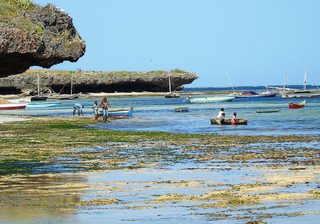
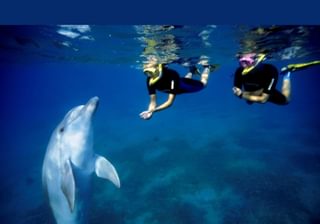
9. Camel Ride
Rest your legs and take a camel ride along the long, wide beaches of Diani. Enjoy the slow pace of these majestic creatures as you watch life-go by passing restaurants, sunbathers and swimmers as you go.
Where to stay
Pinewood Beach resort is located on the glorious Galu beach on the Diani Coast. Simple and elegant with a wonderful array of watersports on offer, Pinewood consistently delivers high standards year after year and is a popular spot of customers to return to time and again.
10. Pole-pole
Pole-pole is Swahili for ‘take it slowly’, and the Kenyan coast is the perfect spot to do just that. Stroll along soft, sandy beaches, swim in the warm jewel-blue sea, relax listening to the sounds of the waves gentle rippling and enjoy a cocktail as the sun sinks below the horizon watching dhows bob up and down in the calm waters.
Where to stay
Almanara Luxury Villas offer an exceptional, luxury private villa experience complete with a private chef and flawless service. Tucked among towering palms and tropical gardens, these villas offer space and privacy with direct access to the stunning beach immediately in front of you too. Whilst there are activities aplenty to keep you busy, this is also the perfect spot to stop, take a moment, catch your breath and 'pole-pole'.
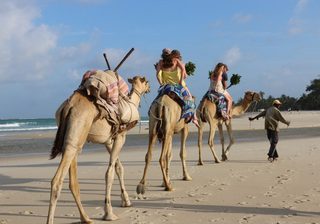
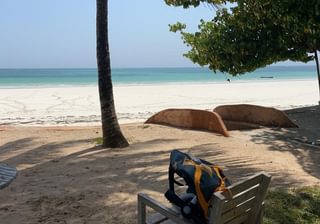
Want to understand more about Kenya's different beaches? Take a look at Kenya's best beaches: a complete guide to the coast
Top Trip Kenya Big Five and Diani Beach
Beach and Bush remain a classic combination for good reason! Start your safari in the dry and dusty Samburu staying at the stunning Saruni Samburu with panoramic views across the arid landscape. Meet the colour Samburu tribes, spot predators out hunting and watch rare rhino munch tuffs of grass. Then its onto the rich plains of the Masai Mara staying in a private conservancy in Mara North. Famed for its large number of big cats, as well as the great migration, the Masai is a must for an Kenyan safari.
Finally, head to the silky soft sands of Diani beach to float in the crystal clear warm sea, relax under swaying palm trees or enjoy an array of watersports.
Kenya Big Five Safari & Beach Honeymoon
What marine life can you see in Kenya?
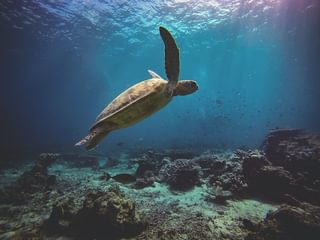
Green turtle (Chelonia mydas)
Green turtles take their name from the colour of the fat found in a layer between their inner organs and shell. Feeding mostly on seagrass, they have been known to reach weights of up to 300kg, whilst the average weight of adult turtles is 110-190kg.
Found: Shallow lagoons and mangrove creeks.
Fact: The gender of sea turtles is dependent on the temperature of the eggs during incubation
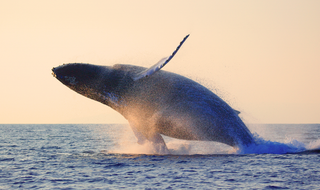
Humpback Whale (Megaptera novaeangliae)
An animal famed for its acrobatic displays, often breaching and slapping the water. Distinctive in shape, with long pectoral fins and a ridged head. Incredibly humpback whales can reach lengths of up to 16m long.
Found: Waters in and surrounding the Watamu Marine National Park
Fact: Each humpback whale tail is unique and individual to the mammal.
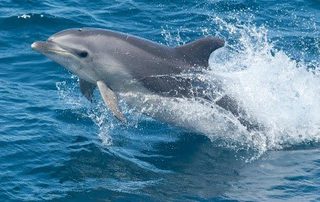
Common Bottlenose Dolphin (Tursiops truncatus)
Living in sociable pods of up to a hundred, these intelligent creatures are masters of mimicry and self-recognition, using artificial language to communicate. Bottlenose Dolphins are grey in colour and vary in size from 2 - 4m.
Found: Watamu Marine National Reserve waters.
Fact: They search for prey primarily using echolocation.
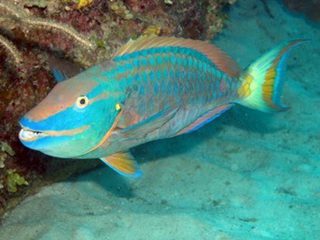
Parrotfish (Scaridae)
There are about 80 species of parrotfish ranging in size from less than 1 to 4 feet in length. Parrotfish are abundant in and around the tropical reefs of the world’s oceans and are particularly recognisable by their brightly coloured scales.
Found: Watamu Marine National Reserve waters.
Fact: Certain species of parrotfish cocoon themselves in a transparent mucous at night, just like pyjamas!
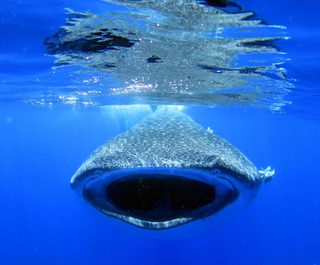
Whale Shark (Rhincodon typus)
Populating tropical seas, the whale shark is a filter feeder passively consuming plankton and small fish in its path close to the water’s surface. Recently there has been a significant increase of whale sharks in Kenyan waters as a result of the El Nino Mantis Shrimp invasion.
Found: southern Kenya coast.
Fact: Whale Sharks are the largest fish in the ocean, reaching lengths of 40 feet or more.
Wondering when to visit? Take a look at best time to visit Kenya.

